Actually, it is quite simple. «Doing good» - with this aim, almost all civil society organisations carry out their programs thinking about what ethics is all about. In their vision and mission statements, they clarify the central ethical question of how to succeed in living together based on respect, responsibility and well-being for all. This is where they derive their legitimacy. And it is the basis of the trust placed in them by donors and the general public. Ethical action is seen as part of their DNA. Thinking about ethics and constantly comparing one's actions with one's own standards is therefore not a priority. Ethics is also a marginal topic in fundraising. There is hardly a congress that deals with it, hardly a training that devotes more than one day to it.
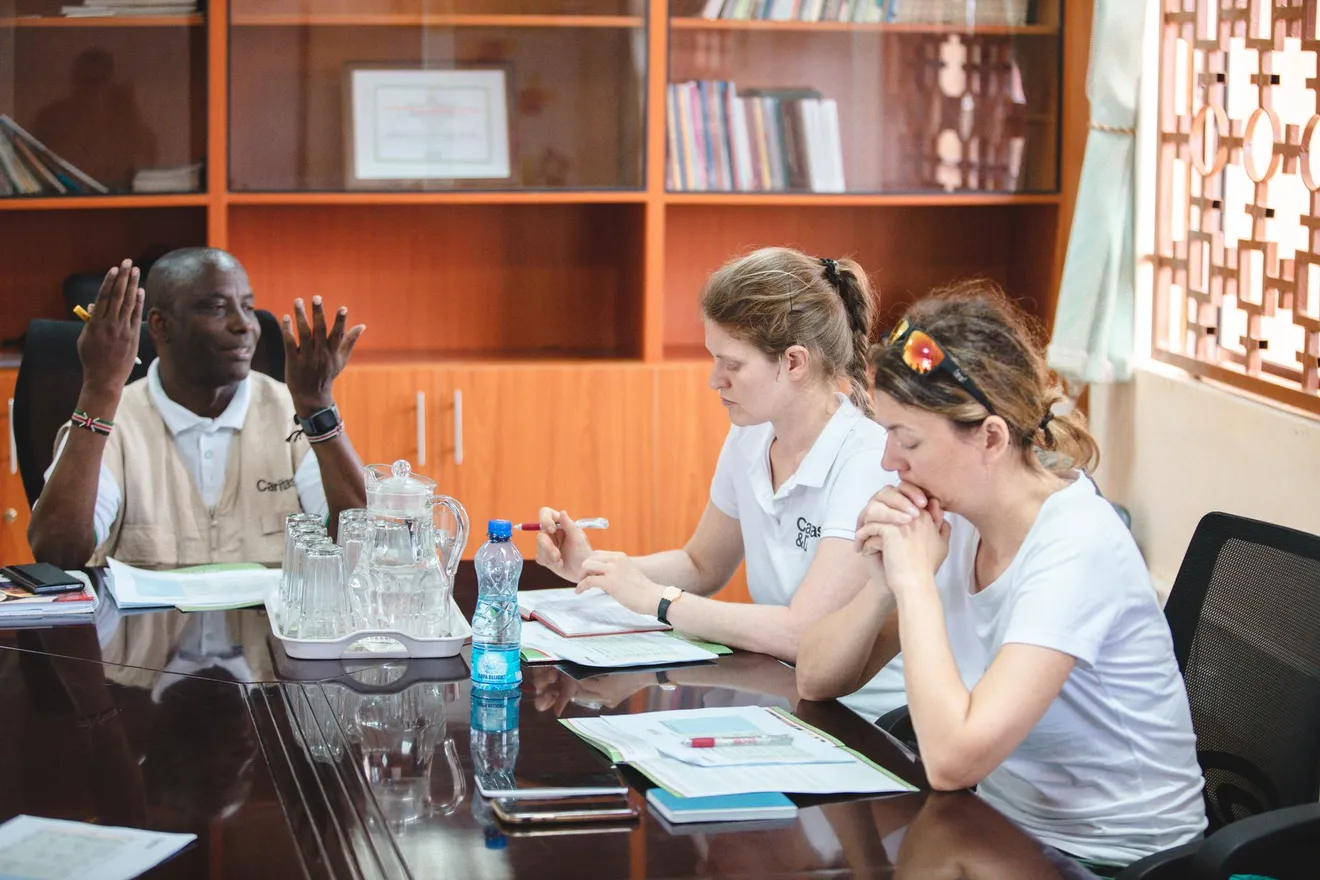
Meeting of the local partner organisation PACIDA with representatives of Caritas Austria in Marsabit.
Marsabit, Kenya 2023: Mutunga Al-Amin / Caritas Austria / Fairpicture
The task of fundraising is to raise money so that civil society organisations can do good. Therefore, the ethical principles to which fundraisers commit themselves are primarily geared to this procurement market. To what extent are we allowed to emotionally influence donors with images? From whom do we accept donations and from whom do we not? How transparent and honest are we towards our donors? How do we protect data? What is an appropriate salary? These are important ethical questions that the fundraising community agrees on, for example, in the International Statement of Ethical Principles in Fundraising. The people who provide fundraisers with their stories and images are only mentioned marginally, if at all, in such ethical guidelines. The generic appeal for respect and the granting of dignity is usually all that is demanded.
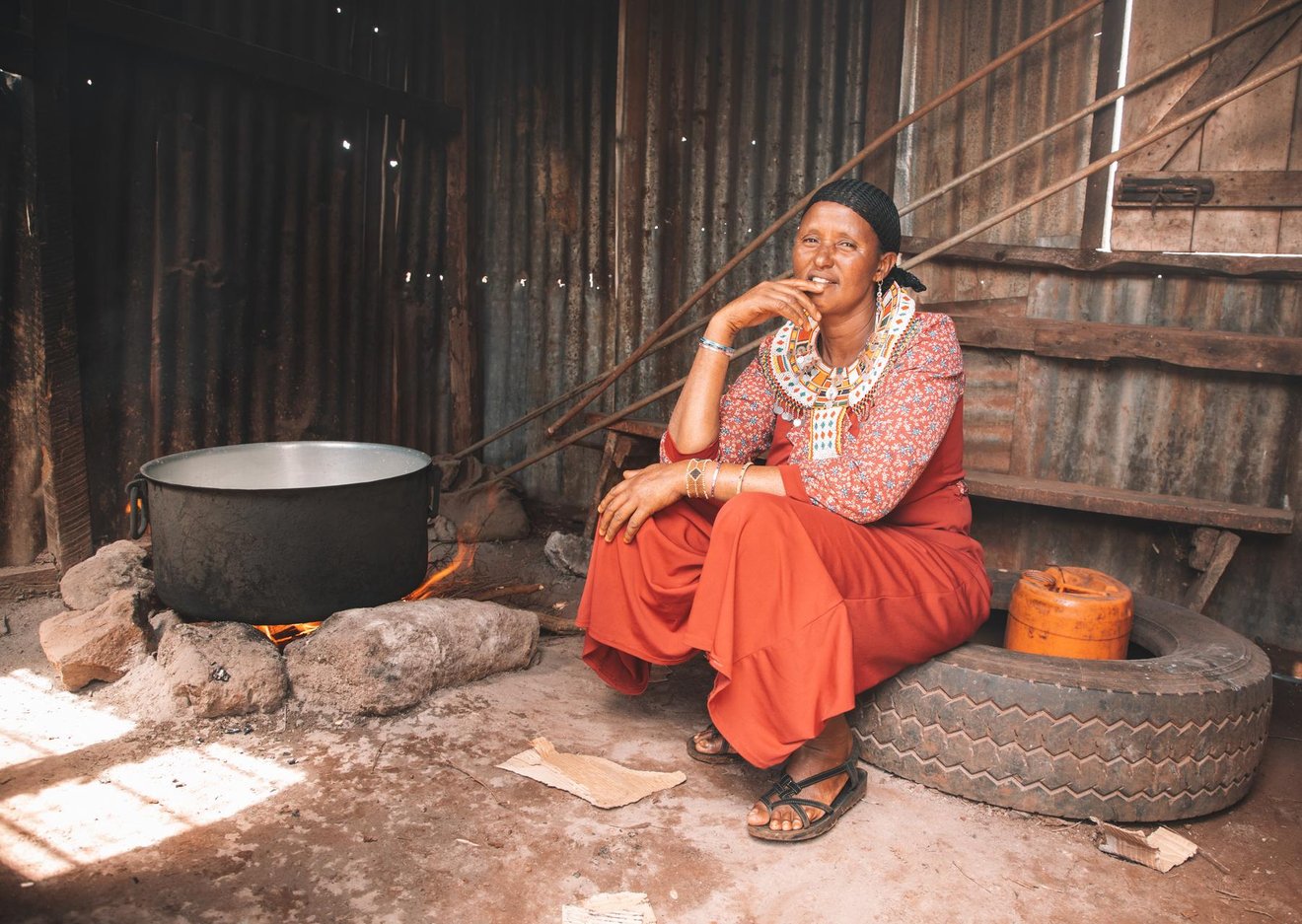
Sabdiyo Logol is the chairperson of the Mt. Marsabit Dairy Group. She processes their milk for later sale.
Marsabit, Kenya 2023: Mutunga Al-Amin / Caritas Austria / Fairpicture
Why is this the case? Why do many NGOs still find it so difficult to take their «beneficiaries» into the focus of their ethical considerations? There is a growing sensitivity in program departments to the fact that projects can have unintended negative consequences. No one loses face when funders demand proof that the programs they fund do no harm. The ethical principle of «do no harm» is standard in project planning and embedded in the program principles of many organisations. Since fundraising, as the communication channel with by far the greatest reach, represents the projects to the donors, is directly linked to the budgets and can therefore be considered an integrated part of the program work, the principle should actually also be applied here. Fundraisers would then also have to check again and again whether they are not harming the people in the projects with their work.
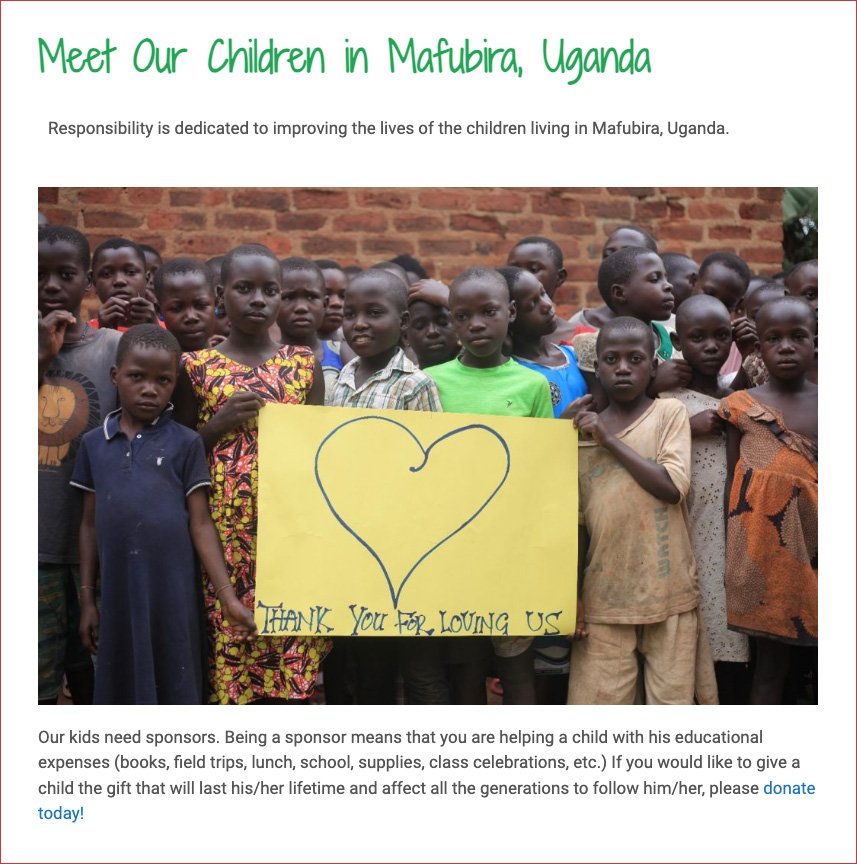
Is it ethically justifiable to instrumentalise children to communicate with donors?
Source: https://responsibilityonline.org/meet-our-children-mafubira-uganda/
We recently had a (very good) discussion with an organisation that asked in their photo briefing for pictures of school children writing «Thank you» on the blackboard. In response to our critical feedback, the staff member in charge said: «I understand the concerns, but we need these pictures to communicate with donors - we don't have enough of them to simply say thank you! (...) It looks really great when the kids stand proudly in front of a board and have written the word themselves. And we have made the experience that such images are great and that they work.. »This small example stands for the «ethical dilemma», in which the principle of economy (=the picture «works» because it touches donors and motivates them to make new donations) and the principle of human dignity (=education is a human right for which no one has to thank) compete with each other.
Jörg Arnold | Fairpicture
In weighing up the two principles, it can be argued that the immaterial damage caused by such a picture (=it is humiliating for the child to have to say thank you for something he/she is entitled to) is out of proportion to the financial damage that may occur if the picture is not produced and used (=another picture generates less revenue, which can in turn be used in the project). The positions that confront each other here illustrate a classic line of conflict between the program people and the fundraisers. And they clearly show how important it would be to have an overarching debate in organisations about ethical principles in fundraising that really goes beyond the inward view of the donors.
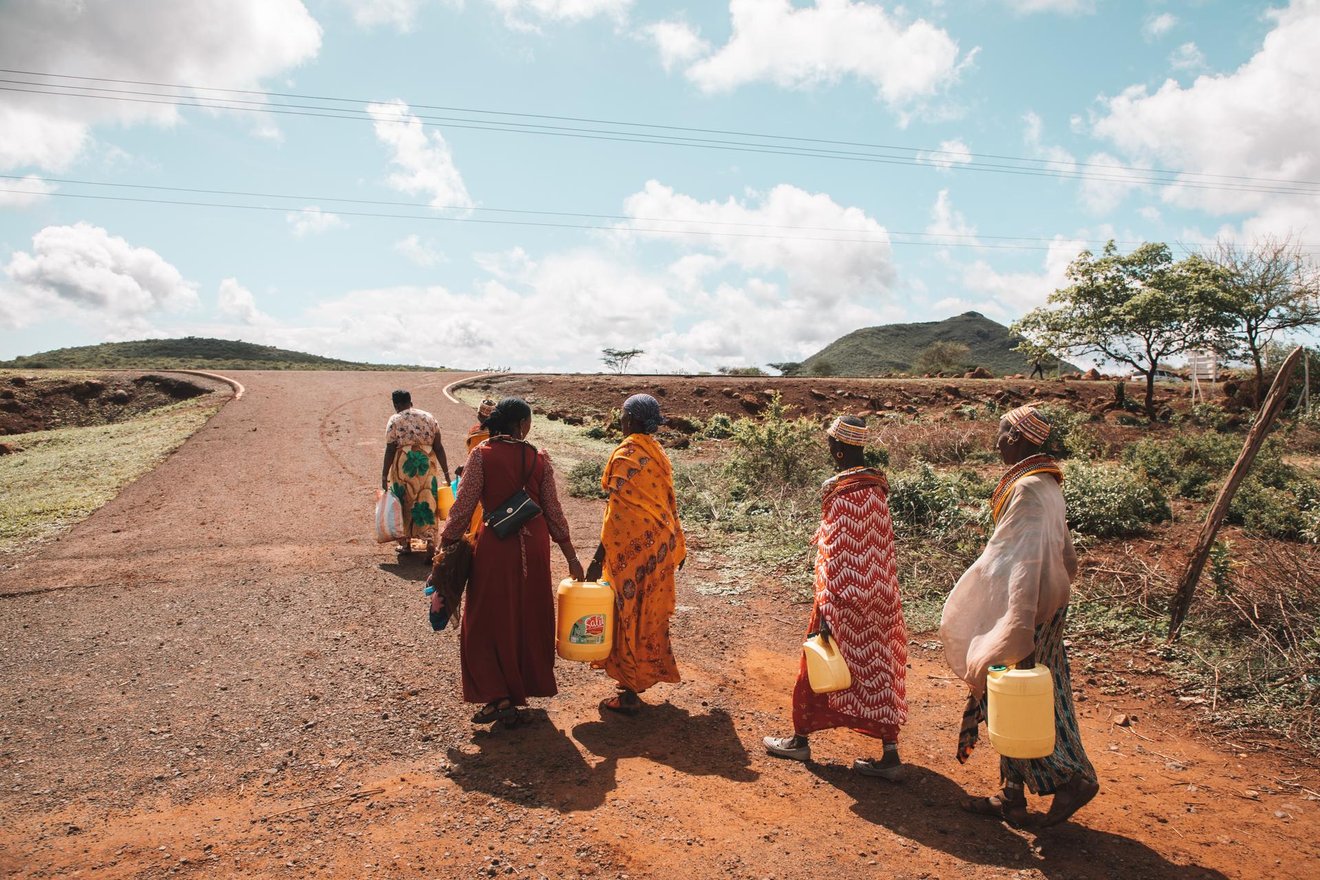
Members of the Mt Marsabit Dairy Group on their way to their milk shop in the mall where they sell their pasteurised milk every day.
Marsabit, Kenya 2023: Mutunga Al-Amin / Caritas Austria / Fairpicture
But fundraising in many organisations is under massive pressure to succeed, and the fear of losing their share in the competitive donations market is great. It is therefore no coincidence that the people and communities, who provide the most important input for fundraising with their stories and images, have only featured very marginally in fundraising ethics to date. Putting them at the centre of ethical considerations would mean taking steps in a slightly different direction for fundraising and developing new ways of telling stories, as we have explored in Fairpicture's Impacts, for example. New narratives are needed and the courage to invest in alternative solutions to the current practice of fundraising. Images need to be produced differently, stories need to be told differently, protagonists need to be involved in storytelling differently. Then solutions can succeed that bring all stakeholders involved on an equal footing: the people who contribute their stories, the visual creators who produce the stories, the donors who receive the stories, the people from the program and the fundraisers who process the stories in their communication. With its Manifesto for Responsible Communication in Development Cooperation, Alliance Sud has created a broad consensus for this in Switzerland. Save the Children has shown new ways in visual storytelling with The people in the pictures and Oxfam took a consistent step a few months ago with its Inclusive Language Guide (find here also the blog by Miša Krenčeyová).
Ethical fundraising does not only describe the relationship with donors. Ethical fundraising also means that the people in the projects are accepted as real counterparts and no longer seen as objects of communication. They are the owners of their own stories, which are not the constructs of western communication agencies anymore. They should speak for themselves when they talk about the reality of their own lives.

November 2025 - Prof. Dr. Peter G. Kirchschlaeger
This article explores what truly makes a picture “ethical” in the age of AI-generated imagery, arguing for human-made, consent-based visuals that respect truth, dignity and autonomy.
Learn more about Ethical Pictures in the Age of AI – An Opinion Piece
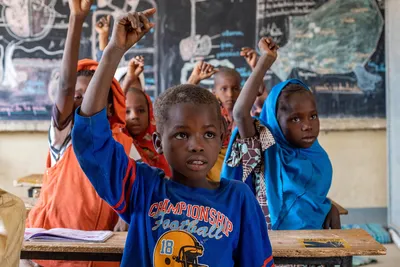
November 2025 - Arwa Elabasy
Discover how transparent communication and ethical storytelling can help NGOs and non-profits build trust, foster inclusion, and challenge traditional narratives.
Learn more about Truth in the Age of Machines: Why Ethical Communication Is Humanity’s Last Campaign

October 2025 - David Girling
Interviews with storytellers from Cambodia, Burundi and Kenya show how NGOs can turn ethical guidelines into practice—centering consent, dignity and context.
Learn more about The Practicalities of Ethical Guidelines in NGO Storytelling